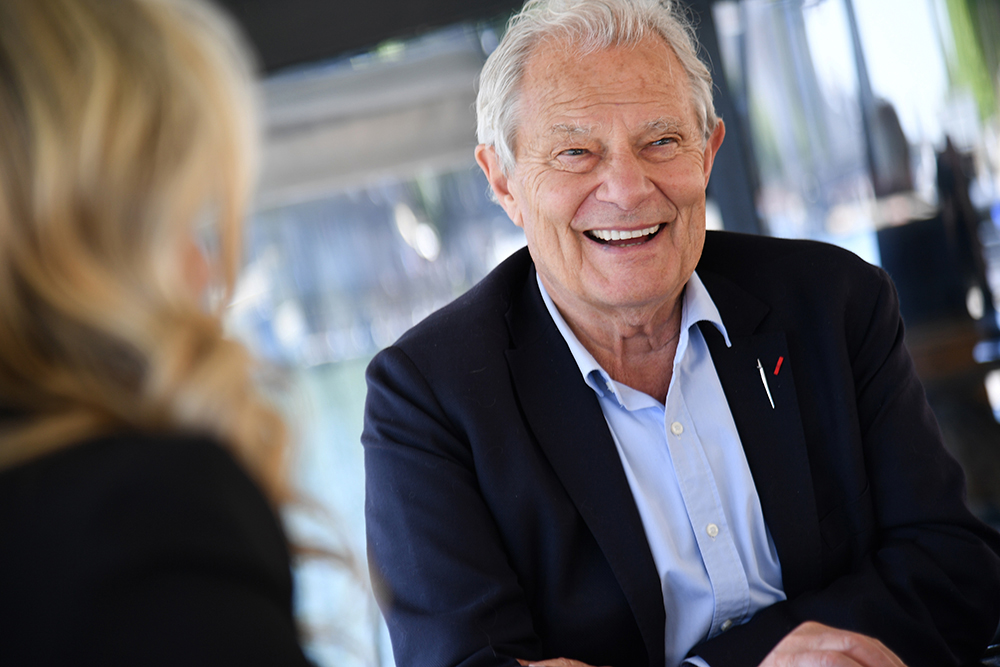 Aerospace and Defense Actors
Aerospace and Defense ActorsAlthough the oceans occupy more than 70% of the surface of the earth, still too few of us measure the vital importance of this jewel which only asks to be preserved. Indeed, the economy of tomorrow will be intrinsically linked to the state of our planet, and it is therefore becoming increasingly important to treat our environment as it should.
September 9, 2022
Although the oceans occupy more than 70% of the surface of the earth, still too few of us measure the vital importance of this jewel which only asks to be preserved. Indeed, the economy of tomorrow will be intrinsically linked to the state of our planet, and it is therefore becoming increasingly important to treat our environment as it should.
When we really take an interest in them, we realize that the oceans are a crucial source of income for the approximately three billion people who depend on marine resources. Not only do they provide approximately one billion people with a healthy daily meal, but they also represent a vital global trade route. Beyond that, they produce more than half of the planet's breathable oxygen and store 50 times more carbon than the atmosphere can. Let's not forget either that the oceans are true thermal conductors, transporting heat or cold between the different regions of the world and thus functioning as a climate regulator.
Occupying most of the planet, the oceans are suffering, attacked from all sides. Large quantities of waste are washed away by the rivers of the continents, amounting to around 13 million tonnes each year. Added to this is the less visible waste: industrial pollution and the direct discharge of effluents into the sea. In writing these lines I have the impression of saying trivialities as we know it, but what awareness brings actions to words, what actions arise from these messages a thousand times worn on faded paper?
So let's keep it short but concise. The most important challenge facing world leaders today is how to develop the capacity to adapt, innovate and survive in a world facing significant environmental upheaval and stresses in the face of a characterized future. by scarce resources.
Protecting the marine ecosystem is quite simply ensuring our survival on the planet. I believe we cannot be clearer.
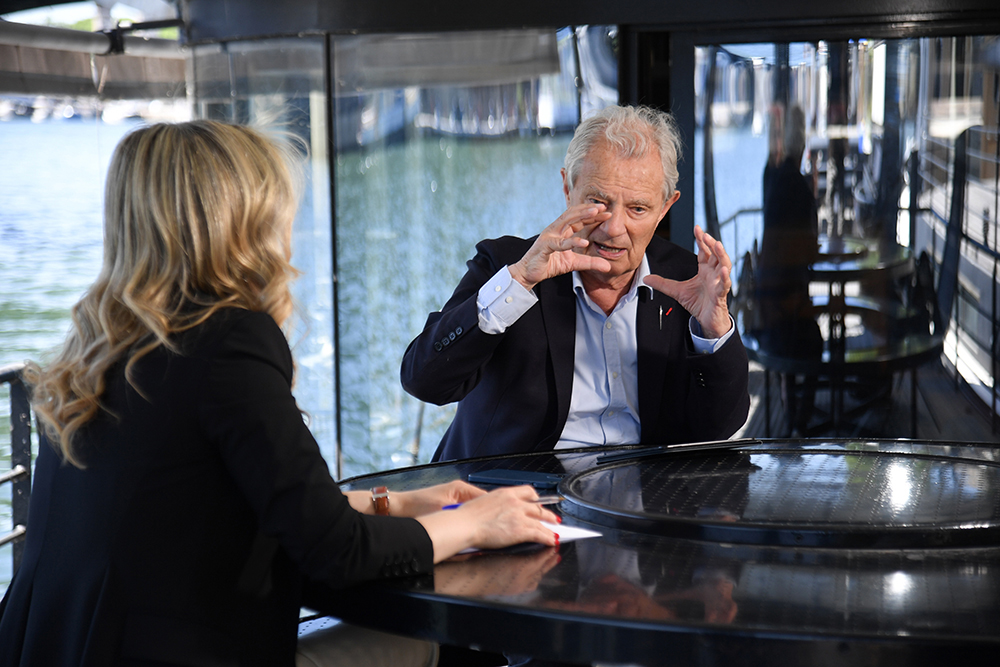
If we want to understand the oceans, we must listen to them more than exploit them. Exploring them allows us to more effectively manage, conserve, regulate and use marine resources that are vital to our economy and our lives, those of our children in the short term.
Humanity's innate curiosity about the environment has long fueled its desire to explore, leading men and women across vast oceans and uncharted continents - and more recently to plumb the depths of interplanetary space.
The similarities between these modes of exploration are found in several aspects. But the management of complex operations, meticulous maintenance of equipment, life in a confined environment are all obstacles to the path taken by professionals dedicated to the exploration of space and the oceans. Their shared passions converge to serve these vital spaces.
Access to both the deep ocean and space has long been limited by the extraordinary physical challenges of exploring these environments, as well as high costs, lack of technological advancements, and the nature of the sharing in the capture of investments. These are the daily challenges of men and women in search of answers that will help ensure the continuity of human life.
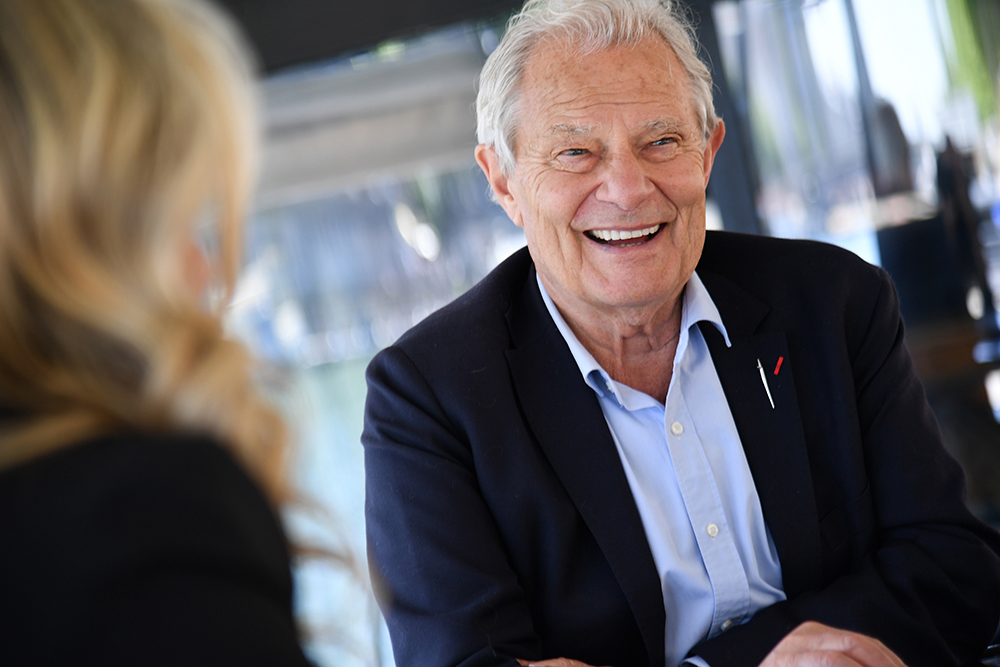
In order to better understand the mystery of the oceans and the associated issues, I had the great honor of meeting a remarkable person, Mr. Jacques Rougerie, a French architect-oceanographer who works, among other things, on underwater habitats . An internationally renowned visionary architect, academician and member of the Institut de France, Jacques Rougerie's research and projects revolve around his unique biomimetic and bio-inspired architecture. A true explorer, he lived in some of its underwater habitats and helped set the American record for 69 days of continuous underwater life under the waves.
Leonardo da Vinci's work fundamentally influenced his dreams and his passions. With his agency "Jacques Rougerie Architectes", he has created some of the most innovative and iconic buildings in the world, including museums, airports, universities, cultural centers and aquatic centers.
While visiting Péniche St-Paul - Port des Champs Elysées in Paris in this balmy summer, I listened intently to Mr. Rougerie as he elaborated on his fascinating projects and shared his vast experience of exploring the oceans. Driven by a passion for the sea, space and advanced technologies, he has built structures as varied as underwater dwellings, underwater laboratories and floating villages. He is also the project leader for the construction of the SeaOrbiter, a semi-submersible scientific exploration vessel. At his side we savor each of his words and we dive into his universe.
In 2009, he created the Jacques Rougerie Foundation “Génération Espace Mer” within the Institut de France. With HSH Prince Albert II of Monaco as honorary president, the institute offers a platform at the service of visionaries, also seeking to continue the work of these inspiring personalities such as Leonardo da Vinci, Jules Verne, Gustave Eiffel, Frank Lloyd Wright and another Zaha Hadid. For this he invents this desirable and sustainable future, through this passion to extend the limits of what we can accomplish.
Building a new future will depend on our dynamism
Transforming the world will not be the sole responsibility of one person, one organization, one nation. It's a real joint effort. A government, a private company, an international organization or an NGO, but above all it also depends on each individual on Earth. We are all responsible for it.
Technological advances in the 19th and 20th centuries accelerated our way of life but also accelerated the destruction of the planet. This consequence was unintended as humanity at the time did not have a deep awareness of how these technological advances would hurt our planet. Today, however, we are fully aware of the consequences of our actions and the destruction we can cause.
Jacques Rougerie is certain that this destruction was never intentional. He explains that true consciousness is based on an extreme understanding of a situation - a situation that can transform or destroy a person in the search for truth. Look at it this way:
When Mr. Rougerie and I discussed his creations, I asked him what he considered most important to him. Without hesitation and with eyes filled with emotion, he confidently gave his answer: "The birth of my child, the creation of a human."
"Educating young people is key to our survival. It is important to encourage younger generations to get involved in meeting the environmental challenges of this century. They are our strength and our energy to change the situation and limit the damage already well underway", says Rougerie.
Rougerie believes in humanity, but he has a particular faith in the new generation, which he describes as having understood the beauty of the planet and the need to take care of it: "No one has the truth in its totality, it must be discovered together and through different ideas and experiences to build the future with awareness.
To improve society, it is essential to allow freedom of thought and to create a space in which people are not only allowed but even encouraged to think differently. Reflection, the first step of human intention, is therefore crucial because it highlights our recognition that we can make choices about what to believe and what to do. In particular, free access to information is insufficient in itself because we must have high quality factual information to make an informed judgment ".
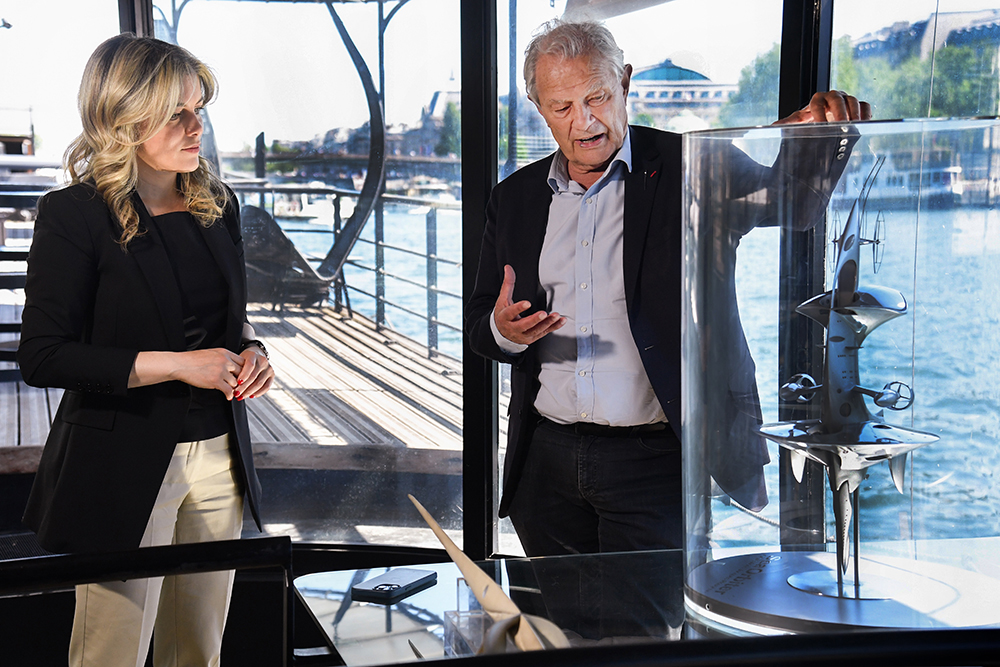
The main environmental issue concerns the planet's natural resources and its resilience in the face of climate change: the means must be identified to ensure the sustainability of this resilience. We need to figure out how we can use natural resources, both on land and in the ocean, to mitigate climate change while maintaining this phenomenal food pantry that has always fed a growing population.
The value of innovation in sustainable marine exploitation
From offshore wind to tidal power, the ocean offers abundant sources of clean, renewable energy without the emission of carbon dioxide or other greenhouse gases.
Marine energy systems rely on the kinetic and thermal energy contained in seawater, such as the power of waves or currents. However, aside from onshore and offshore wind power, these systems remain in the early stages of development, with several prototype tidal and tidal current devices being tested. Once the technology is perfected, ocean energy will have the potential to go far beyond our current energy needs.
The oceans appear to be an infinite resource, but the reality is profoundly different. A growing body of scientific evidence indicates that the health of the oceans is under threat, with marine ecosystems suffering extreme stress from pollution and overexploitation of resources. This demand for ocean resources is unlikely to diminish with rising expectations that the oceans will serve human development and provide unlimited food, materials and space. Due to the unique benefits of the oceans, it is imperative to limit or even reverse ocean degradation and preserve marine health. However, this position leads to an obvious conflict between the conservation of the oceans and the use of marine resources.
The oceans belong to no one and are therefore akin to the Wild West of yesteryear. This underscores the urgent need to empower international communities to implement environmental conservation solutions that will safeguard both oceans and human life. Therefore, the balance between international communities and world leaders becomes more crucial than ever. Unfortunately we know the limits in particular those imposed by certain countries.
The challenges that emerge in the management of the oceans are similar to those in the management of space. Both environments know no borders and escape the protection of laws that would otherwise facilitate sustainable exploitation.
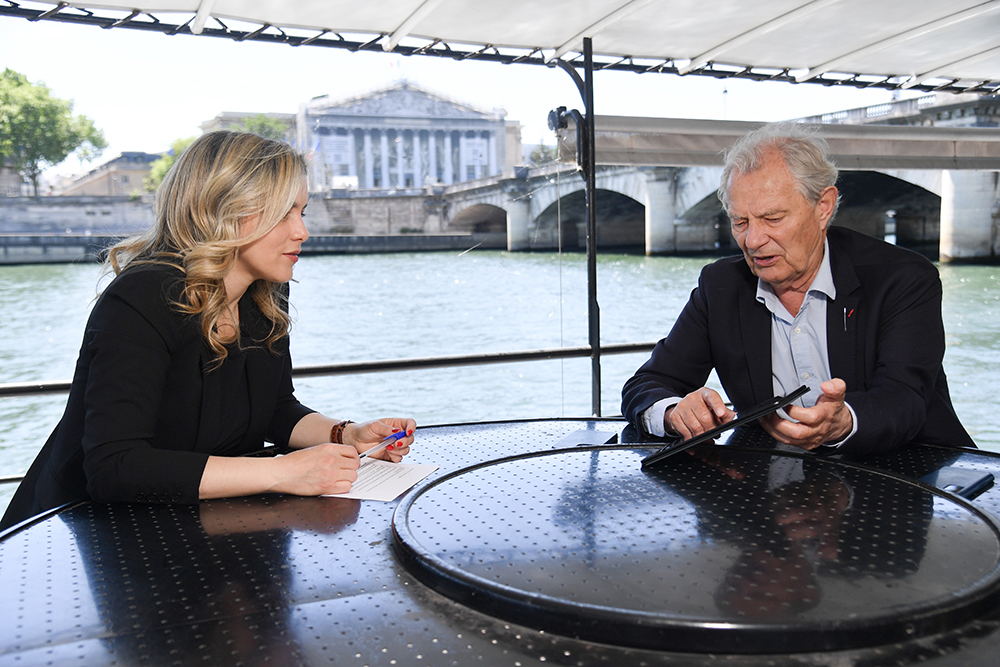
"I'm a crew member on the boat called life," says Jacques Rougerie. According to him, mission is to participate and act in the name of human evolution:
“I dedicated myself to communicating, to transmitting knowledge. I am a team man, and during my life I have carried out various studies, researches, and trips out of passion, with the objective of participating in the evolution of humanity in the role of transmitting knowledge". A determined researcher who, along with others, has dedicated his life to helping to understand the spacecraft we call a planet and the importance of understanding how this flagship works.
"And even though we have already discovered many fascinating things at the bottom of the ocean, I firmly believe that we can still find more answers to understanding human evolution as well as answers to preserving it".
Time is both our greatest weapon and our greatest fear in the fight for the survival of humanity. We must be willing to volunteer our time and make concessions to wage this war against the forces that threaten the survival of the planet and all of its species.
At a time when man is thinking of invading other extraterrestrial lands, it would be a good omen for him to take care of his own planet. Although we have also started leaving some satellite debris in our space. I also believe that learning to preserve our oceans would be a prerequisite before considering going to pollute other areas that are still pure.
In this world war, there will be no flag to plant on the other side as a symbol of territorial conquest - because there is no other side. Nor will there be victorious pride in the face of this drama that humans themselves have caused. We are all soldiers from the same country, from the same planet, we are all crew members on the same ship, we are all homeowners and we are all beholden and responsible for our home. Our planet.
Cheers!
Ana Paula Araujo Mendes

Jacques Rougerie
French architect-oceanographer.
An internationally renowned visionary architect, academician and member of the Institut de France.
In 2009, he created the Jacques Rougerie Foundation “Génération Espace Mer” within the Institut de France.
Interview photos: Xavier Granet

Aerospace and Defense Actors
General Ghislain Rety: Live With Honor, Die in Silence—The French Government’s Secret Weapon GIGN
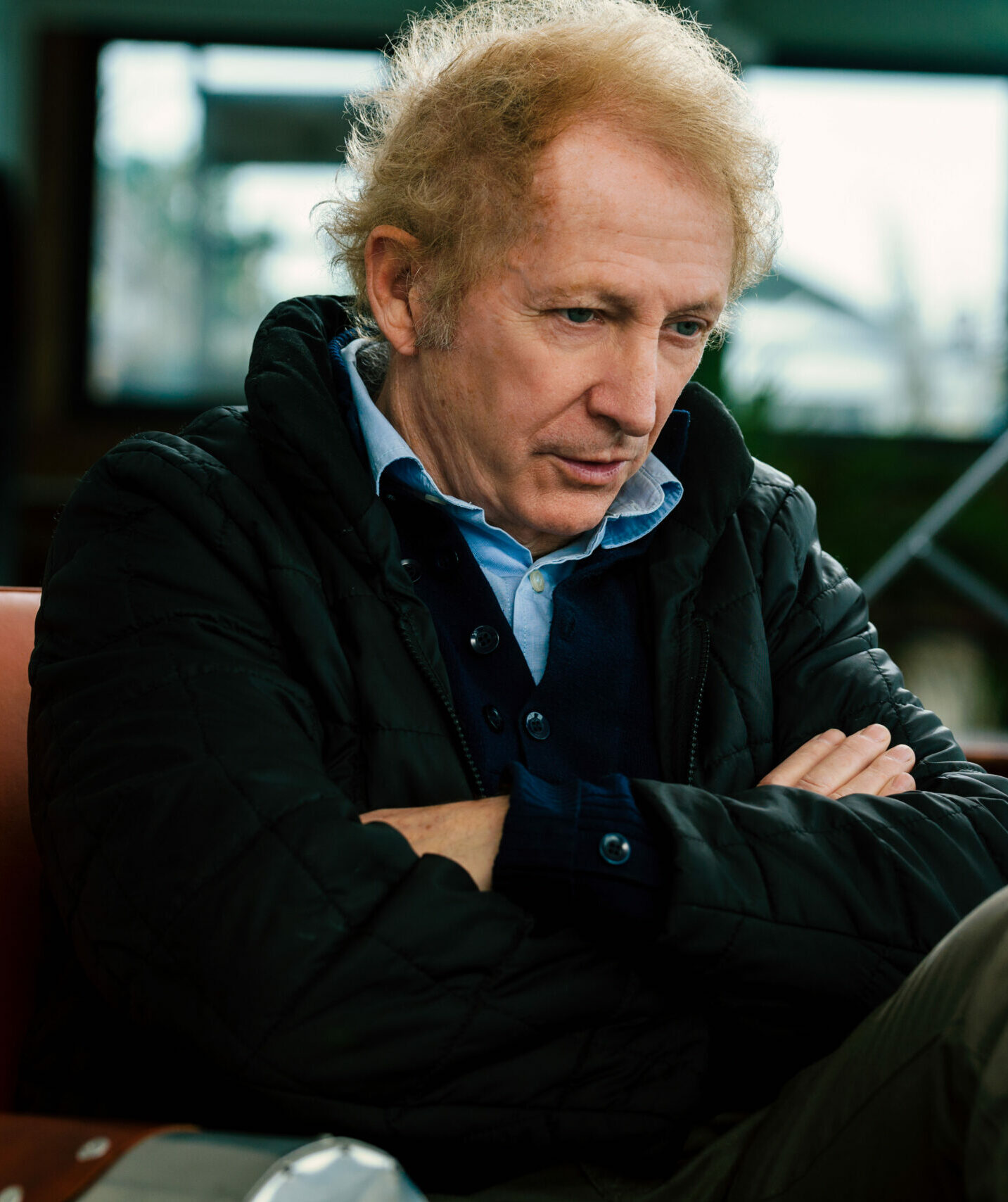
Aerospace and Defense Actors
Gérard Feldzer - Fighting for Peace; A World Without Frontiers
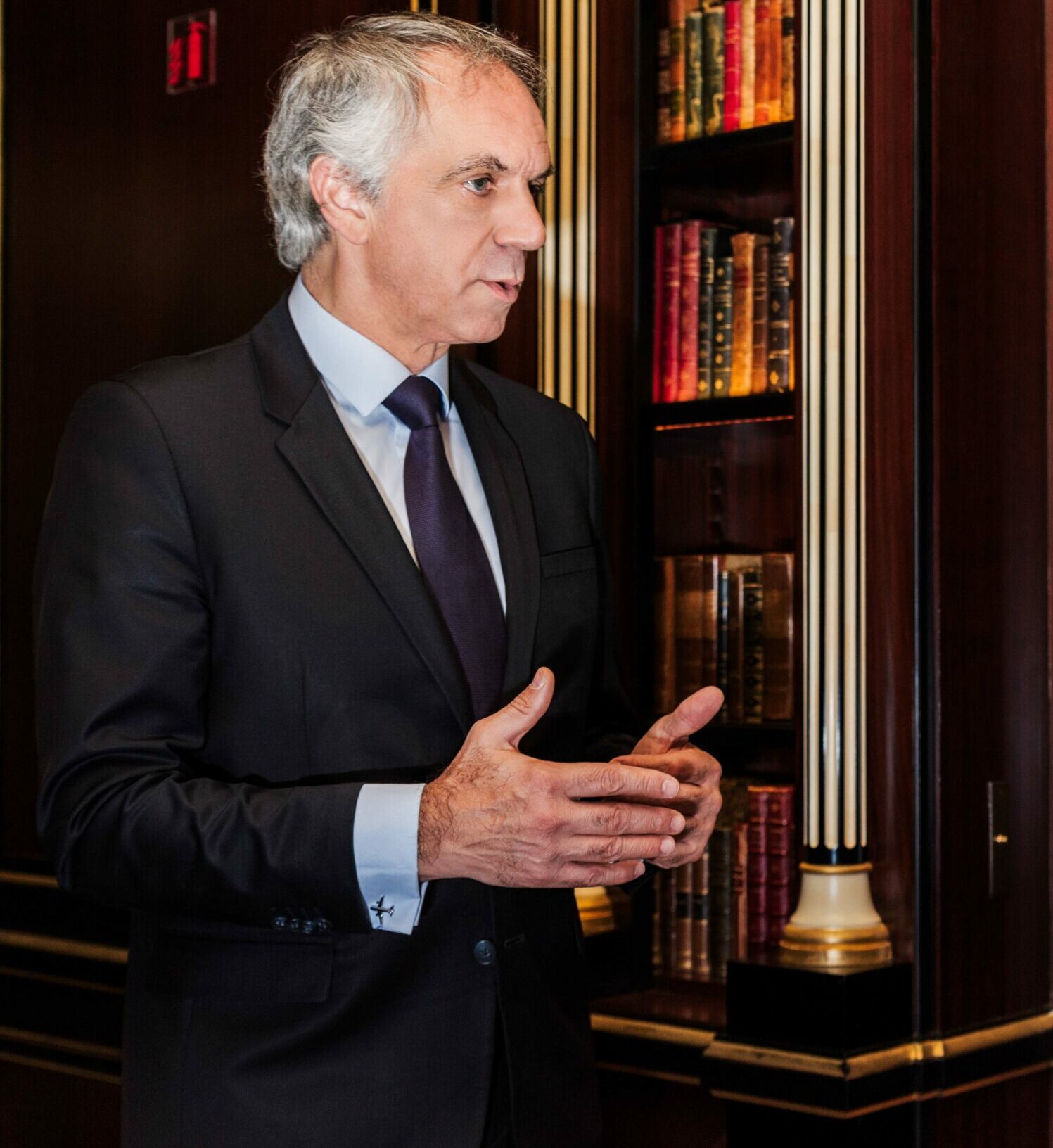
Aerospace and Defense Actors
Philippe Boissat - The future requires vision. Seeing through human eyes or satellites?
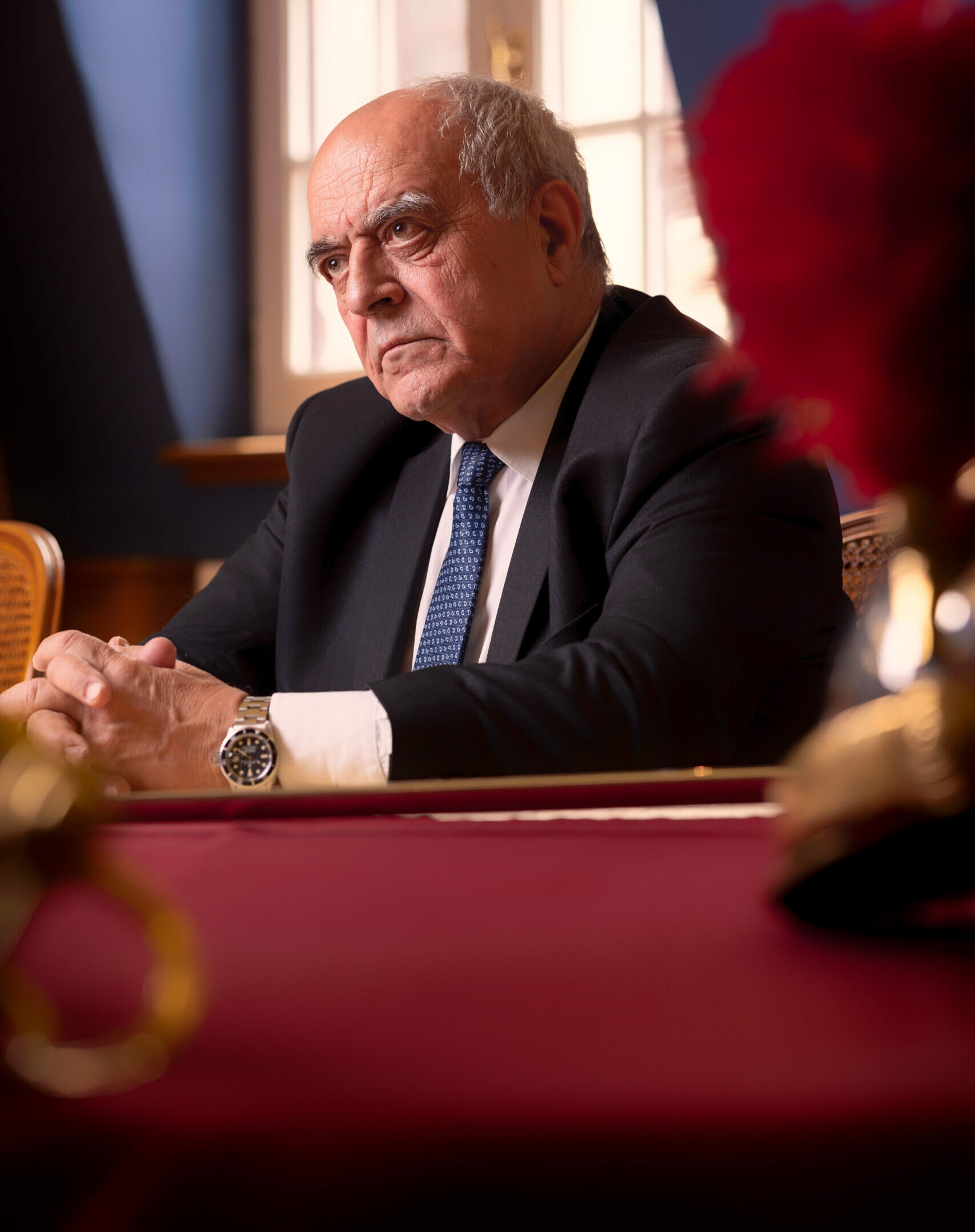
Aerospace and Defense Actors
Alain JUILLET: Competitive Intelligence “Seeking heads”
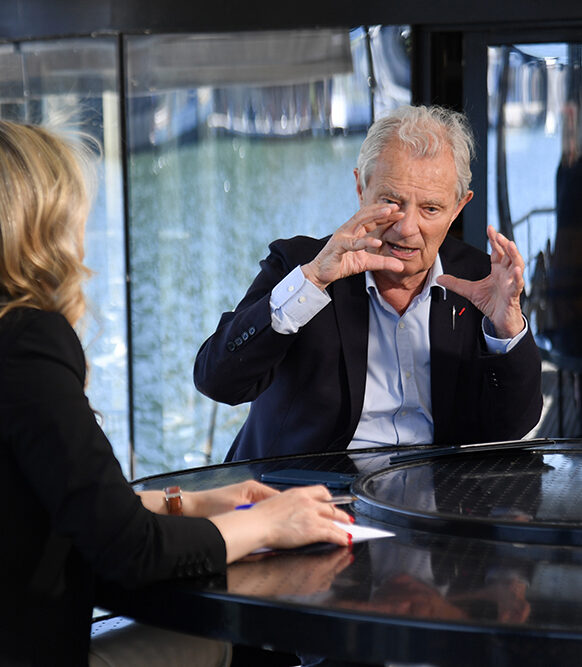
Aerospace and Defense Actors
Jacques Rougerie - Driving Innovation and Solutions to Global Crises

Aerospace and Defense Actors
Major General Dominique Arbiol on Preparing the Next Generation of French Air Force Officers: Building the Right Force for the Future Warfare

